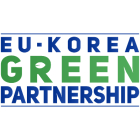
Argentina Zero Deforestation
Relevant information for EU and Argentine stakeholders about the EU regulation on deforestation-free supply chains.


Relevant information for EU and Argentine stakeholders about the EU regulation on deforestation-free supply chains.

Since the 2021 UN Food Systems Summit, there is broad consensus that agrifood systems must be transformed to become more resilient and sustainable and address mounting global challenges including climate change, natural resources depletion and biodiversity loss, environmental degradation, food and nutrition insecurity, and socioeconomic inequities. This is a prerequisite to achieve the 2030 Agenda on Sustainable Development and its associated SDGs. Agroecology is increasingly seen as an effective pathway to achieve the objectives of economic, social and environmental sustainability of food systems. It is rooted in both ecological science and traditional knowledge, and emphasizes the co-creation of knowledge, participatory governance, and context-specific innovation. As defined through the 13 principles of the High-Level Panel of Experts of the UN Committee on World Food Security (CFS) and aligned with the 10 elements of the FAO, it benefits from increased international attention and support. In line with the Global Gateway strategy, DG INTPA approaches agroecology as being open to innovation and to markets in bilateral, regional and global partnerships and actions through i.a.: strategic guidance and technical support to EU delegations (operational guide, Monthly Talks, support to the quality of operations); strategic partnerships with like-minded partners to leverage funds and impacts (such as IFAD); investments in Research and Innovation and in the development & deployment of Sustainability Assessment Frameworks (such as the FAO Tool for Agroecology Performance Evaluation TAPE+, and the IFAD Economic and Financial Assessment EFA+). This work contributes to supporting agriculture value chains development, nutrition, fisheries and food security, as well as to the wider aim of Directorate F to address global challenges such as climate change, circular economy, water management, biodiversity, etc.

The NaturAfrica West Africa regional programme supports a network of key transboundary landscapes for conservation and development in West Africa, with the aim of sustainably managing wildlife and stimulating local economic growth, supporting ecosystems and ensuring resilience in the face of increasing external pressure.

Euroclima, as part of the Global Gateway strategy, builds partnerships between the European Union (EU) and the Latin America and Caribbean (LAC) regions to drive a green and just transition. Through bilateral dialogues and regional collaboration, the programme engages with 33 partner countries and key regional organisations to identify priorities and translate them into concrete actions, fostering long-term environmental and climate resilience. By creating the right conditions and supporting key initiatives in priority sectors, Euroclima helps establish a solid foundation for a sustainable transition. The programme also facilitates the mobilisation of climate and green financing, addressing urgent environmental challenges.

Following the adoption of the EU-Korea Green Partnership at the 10th EU-Korea Summit, the Delegation of the European Union to Korea launched a dedicated cooperation programme to support its effective and practical implementation. Priority areas are: • Green diplomacy and outreach in Korea, implemented in close coordination with EU Member States • Facilitating dialogue and cooperation on a clean and just energy transition • Promoting EU–Korea industrial collaboration in the field of circular economy • Supporting biodiversity conservation and addressing environmental pollution at all levels • Advancing city-to-city partnerships on green and smart urban innovation • Strengthening youth engagement in environmental action and sustainability efforts Key activities are to: • Support policy dialogues and the exchange of best practices through technical workshops and seminars • Conduct technical studies • Organise trainings, study visits, and similar capacity-building activities • Implement outreach initiatives, including media campaigns, conferences, exhibitions, contests, and more

The Global Covenant of Mayors for Climate and Energy is the largest global alliance for city and local climate leadership, built upon the commitment of over 13,000 cities and local governments. These cities hail from 6 continents and 144 countries. In total, they represent more than 1.2 billion people. With Regional and National Covenants of Mayors, cities can commit locally to act to climate change through the GCoM. Each Regional and National Covenant is a member of the GCoM and may profit from contributing to the world’s largest existing initiative supported by the European Commission and Bloomberg Philanthropies and acknowledge by the United Nations Framework Conference for Climate Change rather than to a standalone or new effort.

PRARECOM project is one of the five projects in the Tubehoneza Programme funded by the European Union and implemented by AVSI in consortium with Caritas International Bélgique and Vétérinaire Sans Frontière Belgique. The PRARECOM project aims to contribute to the sustainable strengthening of the resilience of Burundi's rural population in 41 municipalities across 14 provinces. Its specific objective is to enhance the food security, nutrition, and social cohesion of 1,228,863 people by sustainably strengthening their livelihoods and basic services in these areas.

Those living on the shores of the Tonle Sap Lake in Cambodia depend on its resources for their income, yet climate change and overfishing are increasingly threatening their livelihoods. The GREEN project (2021-25) is helping to boost incomes and create sustainable agriculture for the most vulnerable communities.

Background The UN Environment Programme (UNEP) is implementing a three-year project funded by the European Union (EU): Innovative Business Practices and Economic Models in the Textile Value Chain (InTex). The project has five

The FAO-EU Forest Law Enforcement, Governance and Trade (FLEGT) Programme seeks to reduce and eventually eliminate illegal logging. With the support of its donors, the FAO-EU FLEGT Programme funds projects created by governments